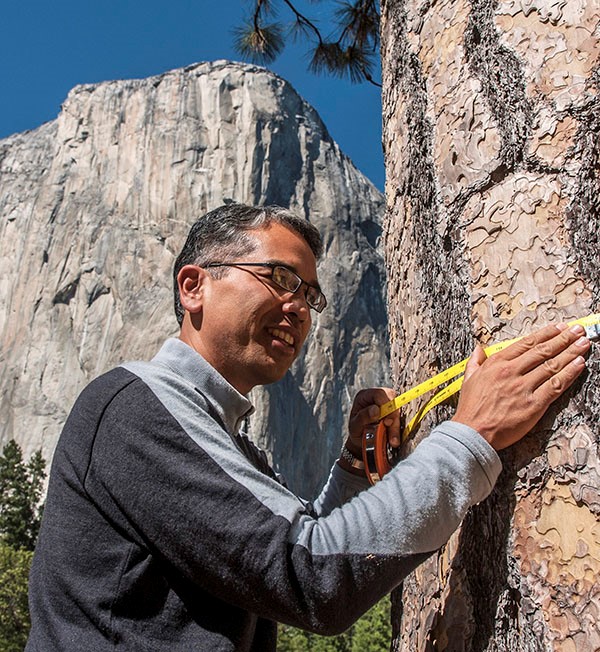
Photo by Al Golub.
ESPM Adjunct professor Patrick Gonzalez will deliver the scientific plenary at this year's annual meeting of the Ecological Society of America (ESA). Titled "Ecological integrity and solutions under anthropogenic climate change," his lecture will take place on Tuesday, August 3 at 8:00 am PDT, and will be available online for registrants of the conference.
Lecture abstract: Emissions of greenhouse gases from cars, power plants, deforestation, and other human sources have raised carbon dioxide to its highest level in the atmosphere in 2 million years, causing anthropogenic climate change. This has increased global mean surface temperature 1.1°C above the pre-industrial period (1850-1900), its highest level in the past 125 000 years. Detection analyses of field observations and attribution analyses of causal factors have found that anthropogenic climate change has increased the area burned by wildfire up to double natural levels, driven drought-induced tree mortality in North America and the African Sahel up to 20%, and caused biome shifts in boreal, temperate, and tropical ecosystems, up to 20 km latitudinally and 300 m upslope. These impacts drive carbon emissions from ecosystems to the atmosphere, exacerbating climate change in self-reinforcing feedbacks. Through increased wildfire, tree mortality, biome shifts, and carbon losses, anthropogenic climate change is damaging key aspects of the integrity of ecosystems and their ability to provide water, food, and other essential services for people. Cutting carbon emissions from human sources is the fundamental solution to prevent dangerous anthropogenic interference with the climate system. Scientific research indicates that energy efficiency and conservation, renewable energy, public transit, a plant-based diet, halting tropical deforestation, and other currently available practices could limit the global temperature increase to less than 2°C. Vital connections of ecologists to these solutions include applied research that guides natural carbon solutions, fire management, biodiversity conservation, and other actions, providing key scientific information to policymakers, engaging the public, and standing strongly for scientific integrity against any attempted suppression of climate change research and communication. Recent progress on cutting carbon emissions demonstrates how each person can advance meaningful action on climate change to protect nature and human well-being.
In addition to his role at Berkeley, Gonzalez is a forest ecologist and Principal Climate Change Scientist of the U.S. National Park Service. He advances science-based action on human-caused climate change through research on climate change, ecosystems, wildfire, and carbon solutions and assistance to local people and policymakers to conserve biodiversity and protect human well-being. Gonzalez has conducted field research in Africa, Latin America, and the U.S., published in Science, Proceedings of the National Academy of Sciences, and other journals, and contributed science to policy in positions in Washington, DC. He has also assisted field managers and local people in 25 countries and 269 U.S. national parks. He has stood publicly for scientific integrity and broadened public understanding of climate change in 122 published articles on his research in the New York Times and other media. Gonzalez has served as a lead author for four reports of the Intergovernmental Panel on Climate Change, the science panel awarded a share of the 2007 Nobel Peace Prize.
More information and registration information is available on the ESA website.
